
Celebrating Student Successes in History & Ancient World Studies
As the year draws to a close, we look back on the achievements of our students, awarded prizes in 2021 for their outstanding work in History and Ancient World studies.
Winner of the 2021 Brian Fitzpatrick Prize for Best Honours Thesis in Australian History, Paul Fearon
The title of Paul’s thesis was The Outer Circle Railway: Boroondara’s Aspiration for a Much-derided Nineteenth-century Railway. The ten-mile cross-radial Outer Circle Railway from the early 1870s has been described by most historians as strange, notorious and a ‘white elephant’.
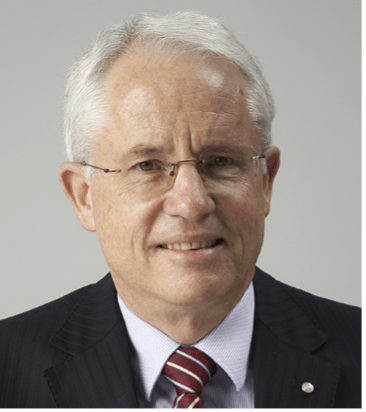 The thesis corrects this largely negative characterisation, arguing that local communities consistently supported and promoted the railway. An almost two-decade delay in its realisation was ultimately fatal to its viability with the onset of the catastrophic 1890s depression.
The thesis corrects this largely negative characterisation, arguing that local communities consistently supported and promoted the railway. An almost two-decade delay in its realisation was ultimately fatal to its viability with the onset of the catastrophic 1890s depression.
Winning the Brian Fitzpatrick prize is a great honour, particularly as his contribution to the historiography of Australia’s economic history is relevant to my current PhD research on state enterprise and statutory authorities. I am very fortunate to have the ongoing support and guidance of my GDipArts(Adv) supervisors, Professors Sean Scalmer and David Goodman. My prize will be donated to the University’s food bank and assisting the Royal Historical Society of Victoria conserve William Barak’s painting Ceremony.
Winner of the 2021 Wyselaskie Scholarship for History, Thea Gardiner
The Wyselaskie Scholarship for History is awarded annually to the highest achieving first-year PhD student in History.
 Thea Gardiner researches and writes on the place of women in Australian historical memory. Her PhD research presents the first biographical study of the Australian artist and activist Portia Geach (1873–1959). The study brings together the fields of art history, family history and gender history, crossing methodological boundaries and shedding new light on a significant yet relatively unknown Australian figure.
Thea Gardiner researches and writes on the place of women in Australian historical memory. Her PhD research presents the first biographical study of the Australian artist and activist Portia Geach (1873–1959). The study brings together the fields of art history, family history and gender history, crossing methodological boundaries and shedding new light on a significant yet relatively unknown Australian figure.
Thea writes,
I am deeply honoured to receive the Wyselaskie scholarship for History. Receiving this scholarship not only alleviates a significant financial burden but also serves as a powerful recognition of my dedication and passion for writing and thinking about the past. The recognition and support provided by the Wyselaskie scholarship reaffirm my commitment to this discipline. It bolsters my confidence in my abilities and motivates me to strive for excellence in my studies and future career. I am determined to make the most of this incredible opportunity and contribute meaningfully to the advancement of historical knowledge.
I would like to express my gratitude to the generous donors who have made this scholarship possible. Your philanthropic spirit and commitment to education are truly commendable.
Co-winner of the 2021 Lloyd Robson Memorial Award, Catherine Gay
This award supports graduate research students of Australian history who are undertaking research interstate.
Cat writes,
 The Lloyd Robson Memorial Prize funded vital research for my PhD thesis. The prize allowed me to visit interstate collections in Sydney, Canberra, Adelaide and Hobart to gather essential and rare primary sources.
The Lloyd Robson Memorial Prize funded vital research for my PhD thesis. The prize allowed me to visit interstate collections in Sydney, Canberra, Adelaide and Hobart to gather essential and rare primary sources.
As a historian of children and childhood, my source base is rich and diverse but often sparse and scattered and I have needed access to multiple collections to gather material.
The opportunity to look beyond Victorian institutions for sources and meet with a wide array of curators and collection managers has immeasurably enriched my thesis and PhD experience.
Winner of a 2021 Norman Macgeorge Scholarship, Madaline Harris-Schober
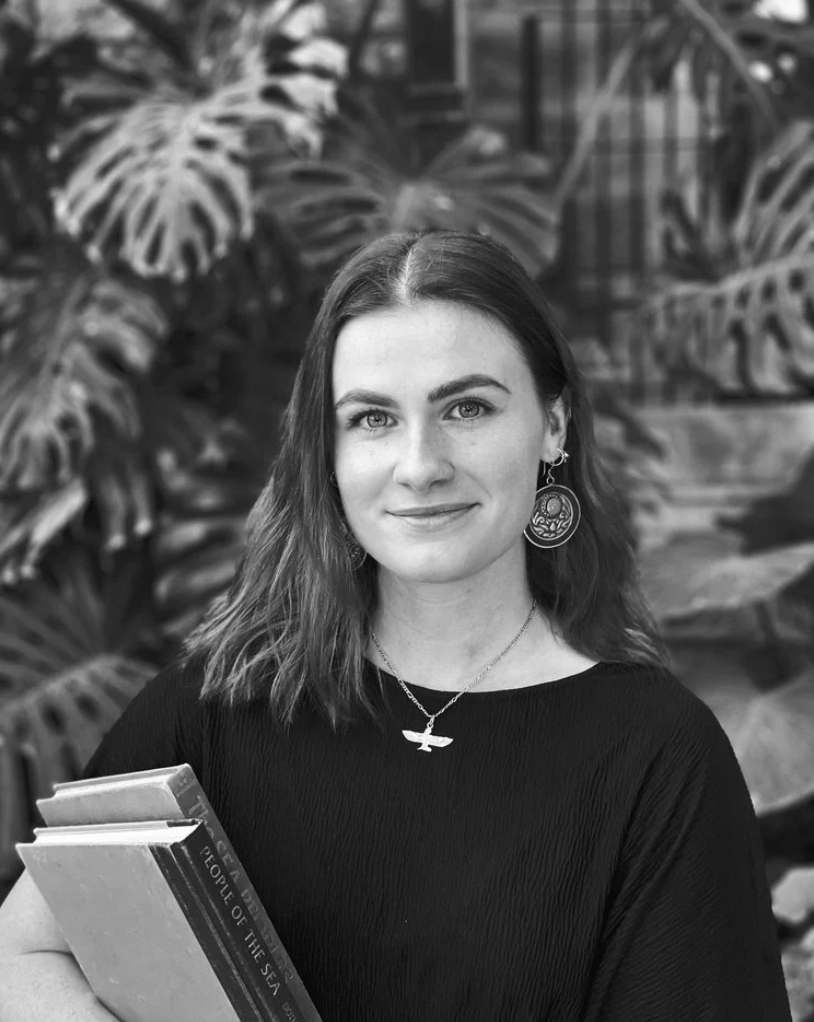 Maddi said of her award:
Maddi said of her award:
To receive the Norman Macgeorge Scholarship is a great honour. This scholarship will allow me to further my research in Eastern Mediterranean archaeology in Cyprus and Israel-Palestine by extending my stay at prestigious institutions and visiting important archaeological sites. This opportunity gives my PhD thesis an international advantage in a competitive field.
Winner of the 2021 Dr Rodney Lloyd Benjamin OAM History prize, James Hogg
The Dr Rodney Lloyd Benjamin OAM History Prize is an annual award for an essay, written by graduate research and coursework students in the Faculty of Arts, focusing on Australian history.
 James Hogg is researching the emergence and evolution of Australian anti-fascism from the 1920s into the postwar period. Focusing on the Communist Party of Australia (CPA), his PhD research sits at the intersection of political, intellectual, and transnational history.
James Hogg is researching the emergence and evolution of Australian anti-fascism from the 1920s into the postwar period. Focusing on the Communist Party of Australia (CPA), his PhD research sits at the intersection of political, intellectual, and transnational history.
It is an absolute honour to receive the Dr Rodney Lloyd Benjamin OAM History Prize. This scholarship represents not only invaluable financial support but a vote of confidence in my pursuit of knowledge of the past.
I’d like to express my deepest gratitude to both the University and the generosity of the donors who’ve made this profound opportunity possible, and for reaffirming my dedication and passion to the study of Australia’s past and its vital consequences in the present.
Winner of the 2021 Margaret Kiddle Prize, Rebi Houlihan
The Margaret Kiddle Prize is awarded annually for the highest ranked honours thesis in History.
Rebi writes,
 My thesis investigated the impact of the Internet and gender on the Emo subculture in the 2000s. I explored many of the different ways Emo was viewed by people within and outside the subculture – particularly the negative reactions of outsiders, and the side-lining of women within the subculture. This thesis served as a launching point for my current research which explores the wider context of the Internet in Australia.
My thesis investigated the impact of the Internet and gender on the Emo subculture in the 2000s. I explored many of the different ways Emo was viewed by people within and outside the subculture – particularly the negative reactions of outsiders, and the side-lining of women within the subculture. This thesis served as a launching point for my current research which explores the wider context of the Internet in Australia.
This prize has provided me with the confidence to move forward into a new chapter of my research.
Winner of the 2021 Rosemary Merlo Prize for Second Year History, Emerson Hurley
This prize is awarded annually for the best essay submitted as part of the prescribed work for a second-year history subject.
 Emerson writes,
Emerson writes,
I am pleased to be the recipient of this award. Dr Millar’s class on the history of the European witch-hunts [Witch-Hunting in European Societies (HIST20080)], for which I wrote this paper, provided a brilliant introduction to many of the key skills for writing early modern history – especially that of entering into the mentalities of past societies, even when they are foreign to our own.
I wrote my paper on the decline of institutional witch-hunting and informal witch beliefs. This topic sits at the intersection of fields – the history of law, the history of popular belief, the history of emotion – in which I intend to continue working through grad school and beyond.
Winner of the 2021 Felix Raab Prize, Ines Jahudka
The Felix Raab Prize is awarded to the highest achieving student for an essay on early modern European history.
 Ines writes,
Ines writes,
I am so excited and proud to have been selected as the recipient of the Felix Raab prize for my undergrad history essay. It is very gratifying to have even be considered, and I wish to pass on my thanks to Professor Catherine Kovesi and Associate Professor Jenny Spinks, who nominated me for the award.
I had a great deal of fun writing the essay in question, and I’m so pleased that others enjoyed reading it!
My essay combined two of my favourite things: history and music. I examined how European tuning systems were exported around the world as part of the imperial process, eventually either overriding existing tunings, or creating a binary between what sounded ‘normal’ and what was ‘exotic’.
Musical instruments contributed to this process: the piano, of course, in music halls and drawing rooms, but also the humble (and very loud) accordion, which insinuated itself into much of the folk and indigenous music of almost every continent.
The technologies of the mid-nineteenth century (the development of recorded music, the gramophone, and radio) then cemented these European tonal structures and essentially recalibrated the global soundscape.
Yet, from the late twentieth century, these ‘exotic’ tonal structures have been incorporated into European musical forms and sold back to the world under the banners of either ‘world music’ or ‘global chill’.
Exoticism in musical tone is now a genre (and a highly profitable one), rather than a feature which defines the Other. It’s a really fascinating process and one which I hope to explore further at some stage.
Winner of the 2021 Dwight Prize for History, Arthur Knight
The Dwight Prize for History is awarded for the highest ranked honours student in History.
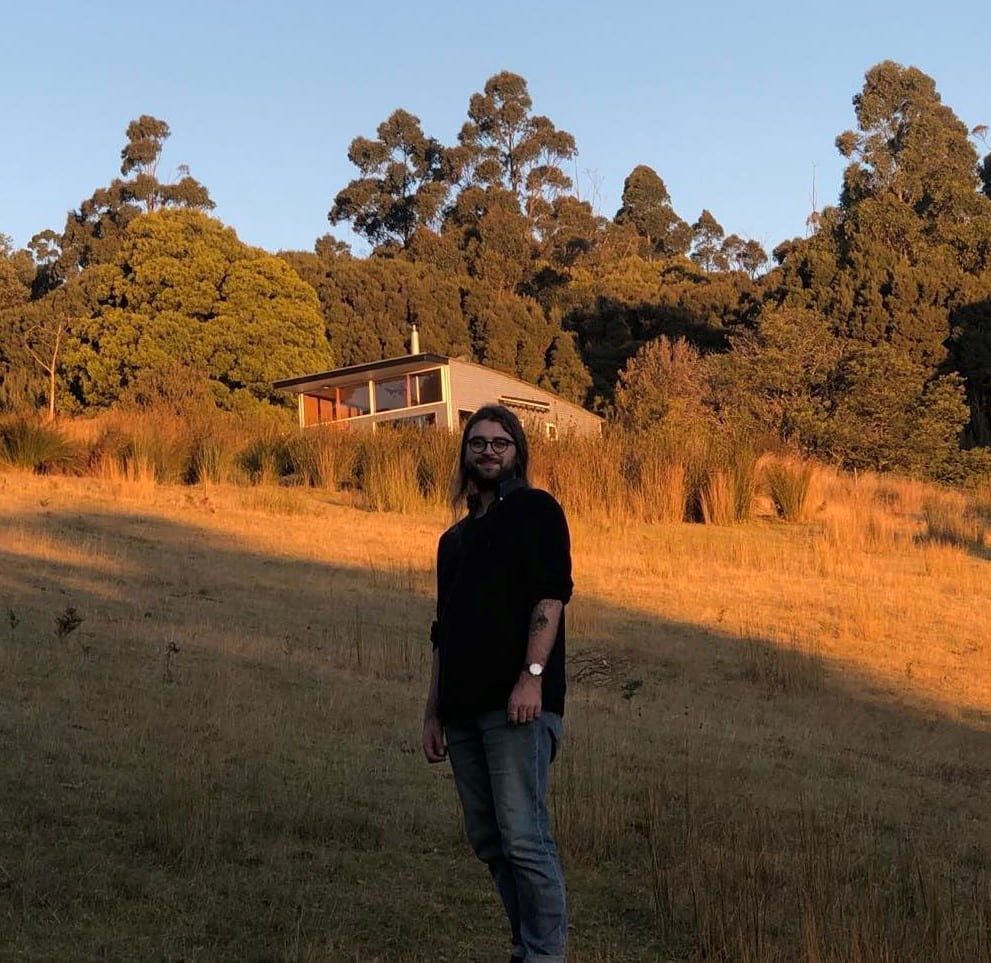 Arthur’s honours thesis examined visual artistic representations of national identity in the Philippines during the martial law period under Ferdinand E. Marcos (1972–1986). Arthur explored state-sponsored art and architectural projects, socialist revolutionary art critical of Marcos, as well as more ambivalent works at the Cultural Centre of the Philippines which challenged conventional binary depictions of art during the dictatorship.
Arthur’s honours thesis examined visual artistic representations of national identity in the Philippines during the martial law period under Ferdinand E. Marcos (1972–1986). Arthur explored state-sponsored art and architectural projects, socialist revolutionary art critical of Marcos, as well as more ambivalent works at the Cultural Centre of the Philippines which challenged conventional binary depictions of art during the dictatorship.
Arthur is now continuing this research as a PhD candidate at the University of Melbourne. His new research investigates Philippine memory of and nostalgia for martial law in visual art.
Arthur writes,
Receiving the Dwight Prize in History is a tremendous honour. Its purpose to further the pursuit of new historical knowledge is one I’m greatly appreciative of and share as an urgent and necessary goal. This award will contribute towards my professional development as a historian, and I am especially grateful for the recognition and support of my work this prize represents.
Winner of the 2021 Marion Boothby Exhibition, Mariana Leite
Winner of the 2021 Donald Mackay British History Prize, Hector Macgillivray
Winner of the 2021 Mary O’Donoghue Prize, Max McKendry
The Mary O’Donoghue Prize is awarded annually for the best undergraduate essay in Irish Studies.
Max writes,
 I was so surprised to receive the Mary O’Donoghue Prize but am extremely grateful! I will always treasure my time at Melbourne University, and I truly felt as if I put my heart and soul into my studies during the lockdowns of 2021. To have been recognised for my work during this time means a great deal.
I was so surprised to receive the Mary O’Donoghue Prize but am extremely grateful! I will always treasure my time at Melbourne University, and I truly felt as if I put my heart and soul into my studies during the lockdowns of 2021. To have been recognised for my work during this time means a great deal.
I really enjoyed focusing on my Irish heritage in the History capstone project. Investigating and presenting the migration of my great-grandparents from Northern Ireland to Australia in the 1930s was so eye-opening, especially for understanding the factors and greater historical context that led to my family residing in Australia today.
Winner of the 2021 Dennis-Wettenhall Prize and the 2021 SHAPS Fellows Group History Essay Prize, Jessie Matheson
The Dennis-Wettenhall Prize is awarded annually for a MA or PhD thesis on Australian history.
 Jessie was awarded the prize for her PhD thesis titled ‘Countryminded Conforming Femininity: A Cultural History of Rural Womanhood in Australia, 1920–1997′.
Jessie was awarded the prize for her PhD thesis titled ‘Countryminded Conforming Femininity: A Cultural History of Rural Womanhood in Australia, 1920–1997′.
Jessie was awarded the SHAPS Fellows’ Group History Essay prize for her essay ‘”Laugh and Grow Fat”: Resistance, complicity, fat bodies, and community amongst rural women in interwar Western Australia, 1934–1939’, which was published in Lilith: A Feminist History Journal in October 2020.
I wish to sincerely thank the SHAPS Fellows’ Group for acknowledging my work with this award. This research was incredibly meaningful to me, and it is really gratifying to see it honoured in this way. As a final year doctoral candidate, having my research read and enjoyed is a real gift. Further, to share stories of the lives and experiences of West Australian rural women, many of whom in their own lives were overlooked and marginalised, is such a privilege. Working within such a strong and supportive community of researchers has been a daily pleasure of my work with SHAPS, and the Fellows do such important work in fostering this environment. Thank you again, I look forward to presenting my essay to the SHAPS Fellows’ & Associates Group. – Jessie Matheson.
Jessie’s prize-winning essay is available online.
Winner of the 2021 Chris Manousopoulos Prize in Ancient History, Adam Moore
 As the inaugural recipient of the Chris Manousopoulos Prize in Ancient History, I extend my deepest thanks to the generous donors, Gary and Margaret Israel, and the friends and alumni of the Faculty of Arts. The success which I enjoyed in my 2021 subjects represented the culmination of an Ancient World Studies major, made possible only by the superb academic staff at the School of Historical and Philosophical Studies.
As the inaugural recipient of the Chris Manousopoulos Prize in Ancient History, I extend my deepest thanks to the generous donors, Gary and Margaret Israel, and the friends and alumni of the Faculty of Arts. The success which I enjoyed in my 2021 subjects represented the culmination of an Ancient World Studies major, made possible only by the superb academic staff at the School of Historical and Philosophical Studies.
With my Honours year now completed, I proceed to an MPhil at the University of Cambridge, where my research in the field of papyrology and manuscript studies shall be bolstered by the understanding of ancient history which I acquired at the University of Melbourne.
Winner of the 2021 Donald Mackay History Prize, William Mott
This prize is awarded annually to the student with the highest mark in any History subject (other than British History) in the second year of a Bachelor of Arts. William won the prize for his performance in the subject American History: 1945 to Now (HIST20071) (since re-named Protest and Politics: US History, 1945-now.
 I was pleasantly surprised and humbled to have been nominated for the 2021 Donald MacKay History Prize. Studying history at the University of Melbourne has given me the opportunities and scope to really indulge my interest in the subject, and has allowed me to understand why it is valuable and important to our culture to know about our past.
I was pleasantly surprised and humbled to have been nominated for the 2021 Donald MacKay History Prize. Studying history at the University of Melbourne has given me the opportunities and scope to really indulge my interest in the subject, and has allowed me to understand why it is valuable and important to our culture to know about our past.
To have my enthusiasm for history recognised with this award has put a spring in my step and renewed energy in my pen to furrow a way forward through my degree and beyond.
Co-winner of the 2021 Lloyd Robson Memorial Award, Beth Muldoon
This award supported Beth’s research partnership with eight Aboriginal and Torres Strait Islander women who were centrally involved in the 1970s Redfern Black Movement, which founded the first Aboriginal community-controlled services and 1972 Aboriginal Tent Embassy.
Winner of the 2021 Rosemary Merlo Prize for 1st Year, Arkie Nelson
This prize is awarded annually for the best essay in a first-year History subject.
In my history studies, I focus predominantly on social and political movements in the twentieth century and how the intersections of race, gender and class, and other marginalised identities, affect how people have experienced historical events.
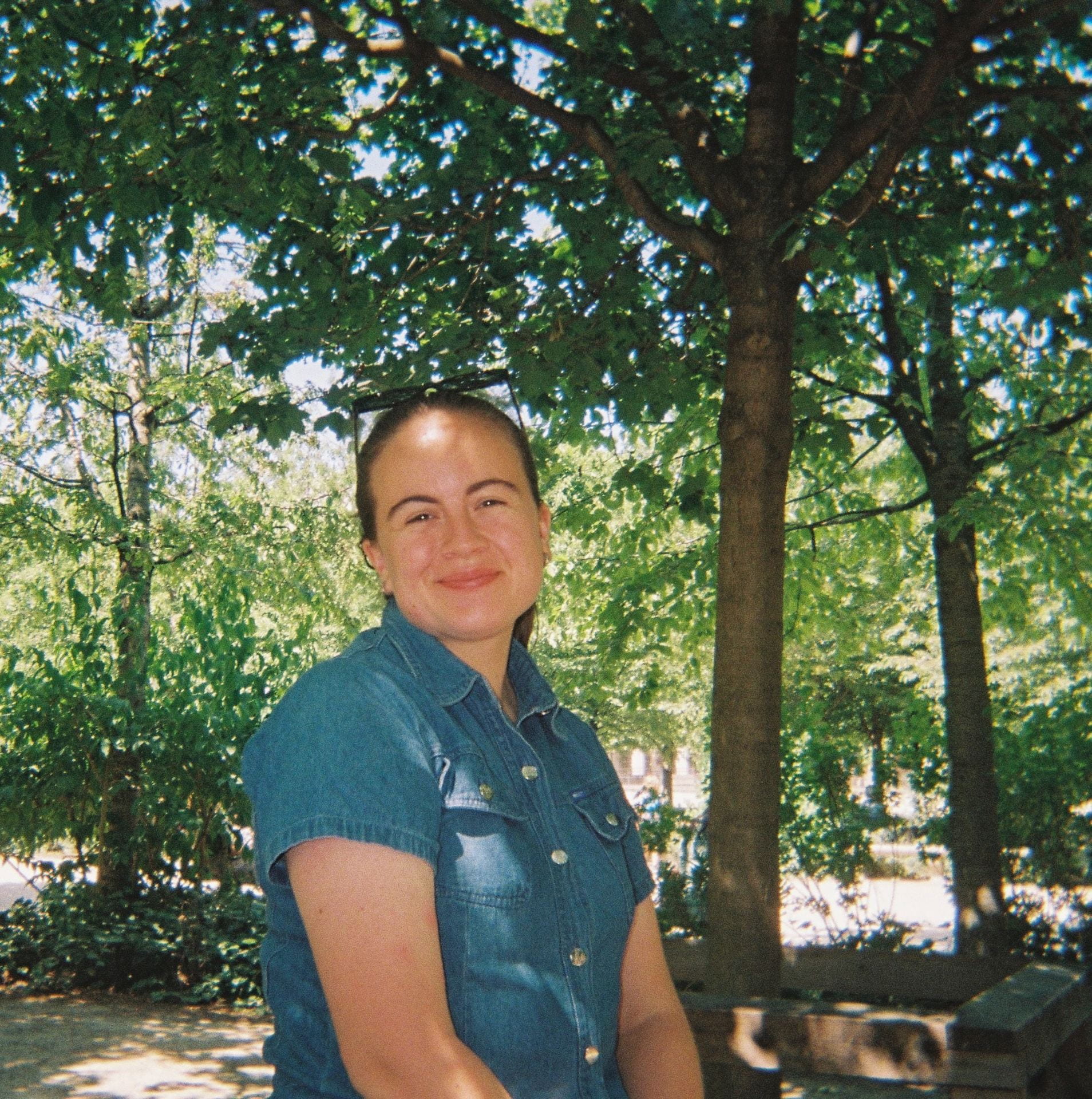 After completing my undergraduate and honours degree, I hope to undertake postgraduate studies, potentially in the curation and critique of museums and galleries. I hope that through my undergraduate and postgraduate studies and my future work, I can help to bring marginalised voices in history to the fore and help us to understand how the past interacts with what we are experiencing in the present.
After completing my undergraduate and honours degree, I hope to undertake postgraduate studies, potentially in the curation and critique of museums and galleries. I hope that through my undergraduate and postgraduate studies and my future work, I can help to bring marginalised voices in history to the fore and help us to understand how the past interacts with what we are experiencing in the present.
Winner of the inaugural Panagacos Family Prize in Ancient Languages in 2021, Leo Palmer
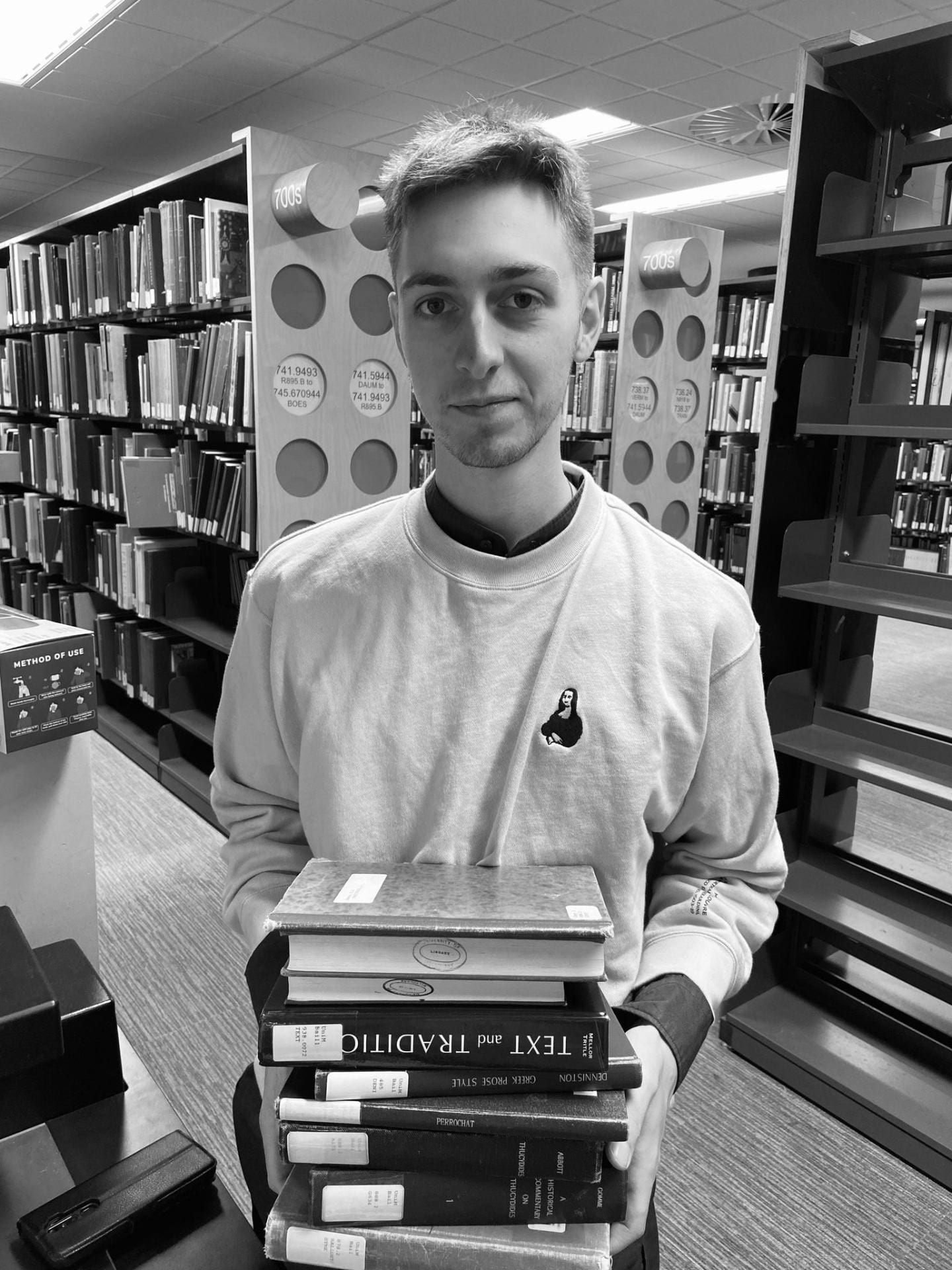 I am grateful and honoured to have been awarded the inaugural Panagacos Family Prize in Ancient Languages in 2021. The second year of the pandemic and lockdowns was challenging for all of us, and for myself personally a year of loss, change, and uncertainty. Any classicist will tell you that the study of ancient texts offers a comforting place of refuge and solace, and I regard this activity as an immense privilege.My third year at the University of Melbourne was especially formative and benefitted from the guidance of many incredible teachers. Since then, I have gone on to complete the Classics Honours program, and I am currently working on a Masters thesis which investigates the origins and inner workings of Athenian democracy in the fifth century. I would love to pursue further graduate research in the future, which this generous prize will undoubtedly help to make possible.
I am grateful and honoured to have been awarded the inaugural Panagacos Family Prize in Ancient Languages in 2021. The second year of the pandemic and lockdowns was challenging for all of us, and for myself personally a year of loss, change, and uncertainty. Any classicist will tell you that the study of ancient texts offers a comforting place of refuge and solace, and I regard this activity as an immense privilege.My third year at the University of Melbourne was especially formative and benefitted from the guidance of many incredible teachers. Since then, I have gone on to complete the Classics Honours program, and I am currently working on a Masters thesis which investigates the origins and inner workings of Athenian democracy in the fifth century. I would love to pursue further graduate research in the future, which this generous prize will undoubtedly help to make possible.
Winner of the 2021 Alma Hansen Scholarship, 2021 Norman Macgeorge Travelling Scholarship, and the 2021 Jessie Webb Scholarship, Laura Pisanu (PhD candidate, Classics & Archaeology)
Laura told us a little about her research and plans for the awards:
My research project is focused on the Nuragic communities that lived at the northern Campidano and southern Montiferru regions in Sardinia (Italy) between the seventeenth and tenth century BCE. The study, which combines data from fieldwork activities and the GIS analyses, may better highlight the Nuragic control over resources, interaction with other fortified sites, and overseas connections.
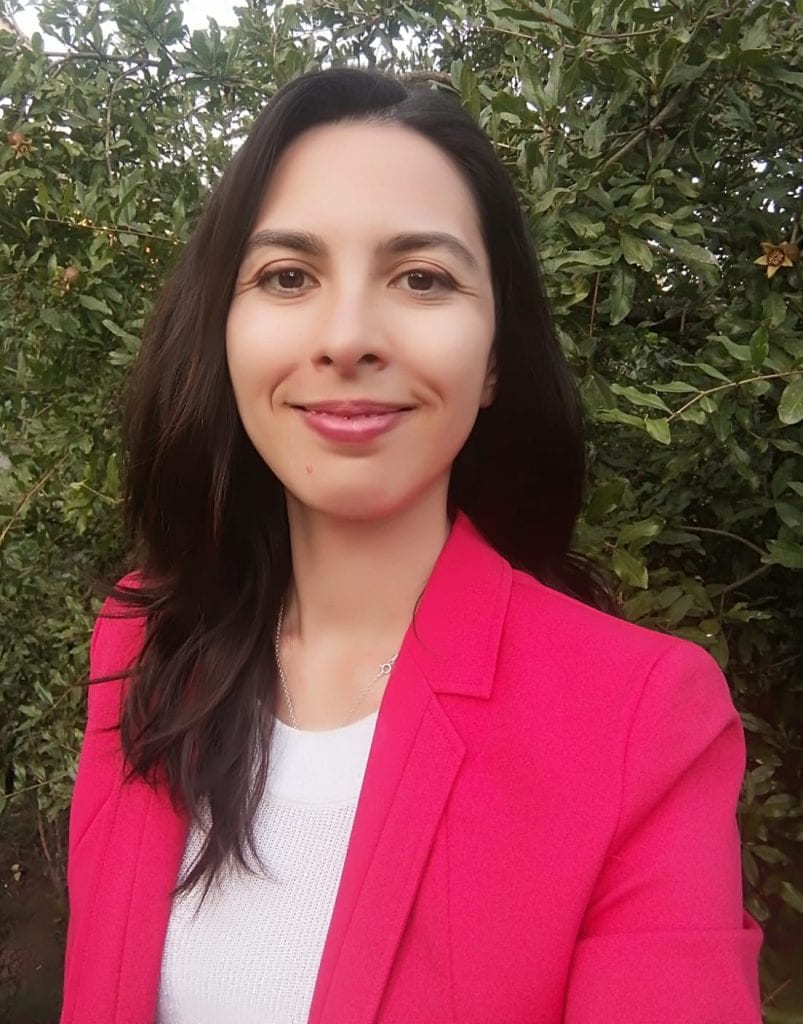 I am honoured and delighted to have been awarded these scholarship.
I am honoured and delighted to have been awarded these scholarship.
The Alma Hansen scholarship provides a unique occasion to extend my research, analyse fieldwork data and to visit Bronze Age sites in Italy. In this way I can access overseas collections and share my research with international scholars.
The Macgeorge scholarship will allow me to spend a research period at the Italian Institute of Prehistoric and Protohistoric studies, while the Jessie Webb scholarship will give me the possibility to carry out my research at the British School of Athens and at the Knossos Research Centre in Heraklion (Greece).
This will assist me to better compare data collected during the fieldwork activities, and better understand Nuragic network within a wider Mediterranean scenario. I am extremely grateful for been chosen as recipient of these awards because they will significantly contribute to the development of my PhD research project and, moreover to increase international academic and public knowledge of Nuragic civilisation.
Winner of the 2021 Gilbert Postdoctoral Career Development Award, Susan Reidy
Susan Reidy (PhD in History, 2021) was delightfully surprised to receive this award. She is appreciative of the award every time she uses her new, large computer, on which she is developing her thesis, ‘Glorious Gardens and Exuberant Grounds, the History of Urban Public Parks in Australia’, into a book. Susan’s PhD is a national study of the social, cultural and landscape history of Australia’s public parks, botanic gardens and sports grounds from colonial settlement to the recent pandemic.
Like parks themselves, Susan’s topic encompasses many aspects of Australian history, from garden and landscape design, to botanical science, the environment, planning and modern urbanism, social customs, recreation and sport, commemoration, heritage, and urban nature. She hopes this big, rich and complex story about public parks, which are essential places in our cities and towns, will interest a wide audience beyond and within the academy.
Winner of a 2021 Norman Macgeorge Travelling Scholarship, Emily Simons
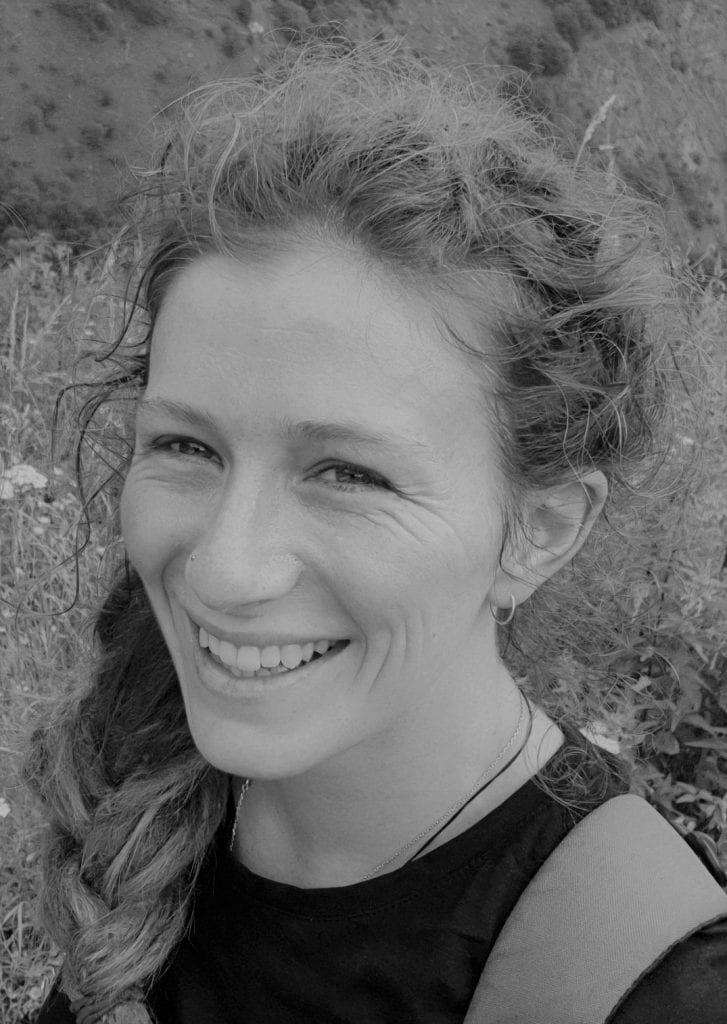 Emily told us what the award means to her:
Emily told us what the award means to her:
Receiving the Norman Macgeorge Scholarship will be incredibly helpful in completing my fieldwork in eastern Mediterranean archaeology. The scholarship provides a great opportunity to extend my research, access international collections, and be part of the wider research community.
Winner of the 2021 Laurie R Gardiner Prize and the 2021 Bowen Prize, Keith Hung Tran
The Laurie R Gardiner Prize is awarded annually for the highest ranked essay on early modern British History (1400–1700) by an undergraduate student.
The Bowen Prize is awarded to the student who submits the best essay on a subject in the field of British History or British literature. This prize alternates each year between the School of Historical and Philosophical Studies and the School of Culture and Communication.
 Keith Hung Tran writes,
Keith Hung Tran writes,
Reliable sources tell me that Professor Gardiner was a giant of the History department, and I’m honoured to receive an award named in his memory.
My essay explores the fascinating life of Lady Mary Wortley Montagu, the wife of the British ambassador to the Ottoman Empire. In her private letters, written between 1716–1718, Lady Montagu attempts to debunk Western myths about the East, but I suspect she made some of them worse.
The essay fuses art history, postcolonial theory, feminist literary theory – sexy, cumbersome ideas that I had a lot of fun with during the lockdown.
I am currently enrolled in the Master of Teaching (Secondary) program at the Melbourne Graduate School of Education, specialising in English and History teaching. Outside that, I work at a Jewish school in Melbourne, where I get to play some role in encouraging historical consciousness and historical empathy among young learners.
 Maya’s prize-winning essay, written for the subject City Visions: Melbourne Intensive (
Maya’s prize-winning essay, written for the subject City Visions: Melbourne Intensive (